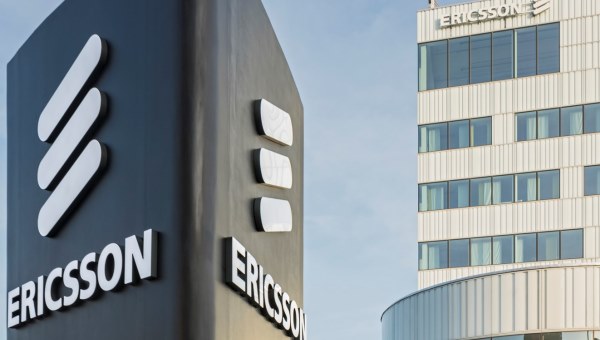Telecom
Ericsson says Connectivity Increases Competitiveness on University Campuses

Universities are hotbeds for ideas and innovation—and also have a nearly insatiable need for connectivity. From labs to classroom A/V equipment, student cell phone coverage to sports arenas, there are a growing host of demands on the networks of these facilities.

Universities have many different IT needs and have to take a holistic view of connectivity, in order to deliver a seamless performance on both public and private networks.
Fixed connections and Wi-Fi alone won’t be enough to meet the demand. The latest generation of mobile wireless in 5G, with its fast speeds, low latency and superior security, can be the missing piece.
Connectivity will be in high demand on campus
Sprawling university campuses can be a difficult environment in which to achieve reliable, secure connectivity.
A private 5G network can serve as an extension of a school’s IP network, untethering applications from hardwired connections and students from Wi-Fi signals that ebb and flow in strength depending on what corner of the quad they’re standing in.
College IT administrators also need to stay ahead of the coming wave of connected devices. To a great extent, they’re already here—a 2018 Center for Digital Education (CDE) survey showed that more than three-quarters of college campuses at the time were either “smart” campuses or on their way to becoming so.
Internet of Things (IoT) applications on campus can include everything from emergency notification systems to building HVAC control, to smart ID badges for students and faculty. The COVID-19 pandemic also rapidly accelerated the use of online portals connecting students both on and off campus.
To power all those devices, a school needs a wide coverage network that gives every inch of campus reliable connections.
Especially in outdoor environments, 5G networks powering a “Fixed Wireless Broadband” solution can provide strong, secure coverage with far less access points than a traditional Wi-Fi setup.
For example, indoors the ratio is typically 5 Wi-Fi APs to 1 LTE/5G AP and for outdoor locations, 7 to 1. This is due to the power regulations set by the FCC as well as the technology advantage of cellular equipment over Wi-Fi.
Mobile broadband can power use cases from the everyday to the cutting edge
One example of how 5G private networks can help university campuses meet their needs is an athletic venue, like a football stadium.
5G equipment allows network slicing, meaning that different functions (arena security, POS for food vendors, tablets on the sidelines, etc.) all have their own dedicated network resources.
A single Wi-Fi network may be too congested or too weak in spots to meet all these needs.
And this can also apply inside the building, for things like smart whiteboards, or A/V equipment beaming in an expert to a classroom.
A mobile broadband connection gives the security and speed of fixed Ethernet while allowing equipment to be moved from room to room. This can also be applied to public safety technology—things like wireless cameras that can be redeployed during an event, or drones for autonomous patrols of outdoor areas.
Private networks aren’t a replacement for Wi-Fi, but a compliment and extension of the school’s existing IP network. A 5G-powered private network can serve as a strong compliment to public mobile broadband, and as IT departments look to “cut the cord” on things like security cameras and A/V equipment, it can provide connectivity that’s just as strong and secure as a hardwired connection.
Future-proof university networks with 5G
Private 5G networks are only part of the overarching connectivity solutions for a university campus.
But there are indirect cost savings to leaning into such a model—for example, public LTE is needed for connectivity outside the school, but costs could be reduced if 80 percent of the data plan is used at the campus. (Studies have shown most wireless subscribers use their phones indoors, meaning they would therefore save on data plans if they used their private wireless networks instead of the public network when on a university campus.)
The use cases detailed here are just the ones that are prolific today. We know driverless vehicles, delivery robots and other cutting-edge tech is on the horizon. In the coming years, universities will want to demonstrate tech proficiency to attract top students and faculty talent to campus.
Things like AR/VR, smart classrooms, and virtual instruction will become the norm. Institutions will also look to things like drones for safety and security.
A 5G private network can help lay a powerful, secure foundation for these technologies.
Every university is in a different stage of bringing students back, as higher education works out what life will be like after the COVID-19 pandemic.
Whether students are fully returned to the classroom or on a permanent hybrid model, one thing will be consistent—everyone, from students to faculty, will expect good connectivity. If a university wants to stay competitive and attract top students and staff, it needs to offer robust, secure and high-speed connectivity on every inch of campus. A 5G private network is a key part of that solution.
Telecom
MTN, BUA, Dangote & Other Industry Giants Triumph at NGX Made of Africa Awards

Nigerian Exchange Group (NGX) hosted its annual Made of Africa (MOA) 2025 Awards on Monday, February 4, 2026. The event, held during the NGX year-end celebrations, brought together regulators, listed companies, and market operators such as MTN, BUA, Dangote, Transcorp, to celebrate achievements in compliance, sustainability, and market performance.

In his opening remarks, Dr. Umaru Kwairanga, the Chairman of Nigerian Exchange Limited, said “Excellence in compliance, sustainability, and several other categories recognises the fact that capital market operators and quoted companies must be standards not only in terms of the size of their operations but also adherence to regulations and best practices of corporate social responsibilities.”
He emphasised that the awards serve as a benchmark for excellence. He noted that the 2025 honourees demonstrated significant improvements in branding, customer service, and operational standards despite a challenging economic environment in Nigeria.
Among the evening’s significant winners was MTN Nigeria, which was honoured for its commitment to corporate transparency. The technology giant received the award for Leadership in Sustainability Reporting, emerging as the winner in a category that included Seplat Energy, BUA Cement, and Transnational Corporation of Nigeria PLC.
The award recognised the brand’s adherence to both national and global reporting standards, reflecting its role in advancing environmental, social, and governance (ESG) practices within the Nigerian corporate space.
Tobe Okigbo, Chief Corporate Services & Sustainability Officer, MTN Nigeria, said “This recognition for Leadership in Sustainability Reporting underscores our commitment to transparency and aligning with global best practices.
“As the capital market moves toward greater accountability, MTN Nigeria remains dedicated to demonstrating resilience and faith in the Nigerian economy through comprehensive and standard-compliant reporting.”
The ceremony saw several other major players in the financial sector secure multiple accolades. Chapel Hill Denham emerged as one of the night’s most successful firms, winning in categories including Fund Manager with the Largest Listed Fund Size and Market Operator with the Highest Value of Foreign Portfolio Investment (FPI) Transactions.
Other notable winners included: Cardinal Stone Securities Limited, named Broker of the Year and Equity Trader of the Year, Dangote Cement was awarded Best Issuer in terms of Fixed Income Listings, BUA Cement PLC was recognised as the Most Compliant Listed Company, and Transnational Corporation of Nigeria (Transcorp) PLC received special recognition for Capital Market Excellence in Equity.
Mr. Jude Chiemeka, the Chief Executive Officer of Nigerian Exchange Limited, congratulated the recipients, noting that the market saw a 51% close in the All-Share Index last year, making it the second-best performing market globally. He urged winners and nominees alike to continue striving for excellence to further the aspiration of a $1 trillion Nigerian economy.
Telecom
Nigeria’s Internet Users Hit 148.2m Amid Data Cost Surge

Nigeria’s internet subscriber base surged to 148.2 million by December 2025, achieving 68.3% penetration, even amid 50% tariff hikes and naira depreciation, according to Nigerian Communications Commission (NCC) data.

MTN and Airtel dominated with 86% market share, Airtel adding 1 million subscribers in December alone, while Glo and 9mobile lagged as legacy players.
Data consumption exploded 35% to 13.25 million terabytes yearly, but Nigerians spent ₦20.87 billion daily—totalling ₦7.62 trillion ($5.58 billion)—as gigabyte prices doubled from ₦287 to ₦575.
User frustrations mounted from network failures, thousands of fibre cuts due to construction and vandalism between January and August 2025, and poor service quality despite billions in revenue. 4G LTE held 52.95% share as the workhorse, 2G clung to 37.37% in rural areas, and 5G remained a 3.77% urban luxury limited by device costs and base stations.
The NCC’s 70% broadband target fell short at 51.97%, though the ICT sector boosted Q3 GDP by ₦7.47 trillion and restored telco profits post-2024 losses.
In 2026, attention shifts to quality matching rising costs, with users urged to stay powered amid persistent “spinning wheel” woes.
Telecom
MTN CIO Urges Africa to Lead Fourth Digital Revolution

Chief Information Officer of MTN Nigeria, and recently appointed Executive, IT Core Design for MTN Group, Shoyinka Shodunke says Africa has a rare opportunity to lead and participate in the ongoing fourth digital revolution, provided it overcomes hesitation, legacy mindsets, and weak leadership.

Shoyinka Shodunke
The call was made known on Friday, at Tech Revolution Africa 2.0, during a keynote session titled “The Digital Economy Forecast for 2026.”
The conference, sponsored by, alongside David Ogebe, Chief Executive Officer of HOH, was designed to connect the full value chain of technology across the continent. It brought together talents, innovators, policymakers, startups, investors, and industry leaders to network, collaborate, discuss the future of technology, and drive innovation across Africa.
Speaking at the event, Shoyinkareferenced Africa’s historical experience with past industrial revolutions, the MTN CIO warned against repeating old mistakes.“Africa was completely missing from the first industrial revolution. In the second, we were only providers of raw materials, and in the third, we were merely consumers.
“Revolutions punish hesitation. When Africa hesitated in the first, second, and third revolutions, we lost out, and history punished us”, he said.
Shodunke stressed that the fourth digital revolution presents a different reality, driven by data, cloud computing, and talent rather than heavy capital investments.
“The inputs today are data, cloud, and talent. The factory now sits in the cloud. For the very first time, Africa has an opportunity not just to participate, but to lead, because the playing field has changed.” He stated.
He identified leadership, rather than capital or talent, as the biggest challenge facing Africa’s digital future. “Our biggest risk is not lack of capital or talent; it is leadership.”
Shodunke said: “This is not a time for comfort or committee meetings. It is a time for bold leadership that is willing to disrupt legacy products, legacy revenues, and even itself.”
Using MTN Nigeria as a case study, he noted that the company has moved beyond basic connectivity into cloud services, fintech, and artificial intelligence.
According to him, connectivity and data have become commodities, and the real value is in building intelligence on top of those commodities, where winners in this digital era would emerge.
He therefore urged African youths and innovators to act decisively.
His words: “History does not reward those who wait to be convinced. The time to act is now. Africa must not be left behind again; this time, we can set the trend for the fourth digital generation.”
While noting the visible growth of the platform, the transformation and revolution that have been carried out within a year, Shodunke commended the conference conveners for building a strong ecosystem for technology conversations in Africa.
Following his keynote session, the MTN CIO was honoured with the Pan-African Technology Leader of the Year award, in recognition of his impact and outstanding contributions to technology development across Africa and his consistent leadership in advancing the continent’s digital ecosystem.

 General News1 day ago
General News1 day agoNigeria’s Banks Race to Meet CBN Recapitalisation Deadline Amid Verification Push

 General News1 day ago
General News1 day agoJumia Targets Break-even in 2026 After Strong Q4 Surge

 General News1 day ago
General News1 day agoBOI, MTN Foundation Unveil N1Bn Fund for Women Entrepreneurs

 General News1 day ago
General News1 day agoUBA Unveils Diaspora Platform to Connect Global Africans with Investment, Wealth Opportunities

 E-Financial1 day ago
E-Financial1 day agoNo VAT on Land, Buildings and Rent Under New Tax Law — Oyedele

 E-Financial1 day ago
E-Financial1 day agoIs Nigeria Borrowing to Survive or to Build?

 E-Financial1 day ago
E-Financial1 day agoCBN Slams Up to N10m Fine on Banks and Cheque Printers for Security Breaches

 General News18 hours ago
General News18 hours agoLeo Stan Ekeh Foundation, Zinox Group To Invest 10B on 1000 University Tech Scholarships for Indigent Nigeria Wiz-kids


























